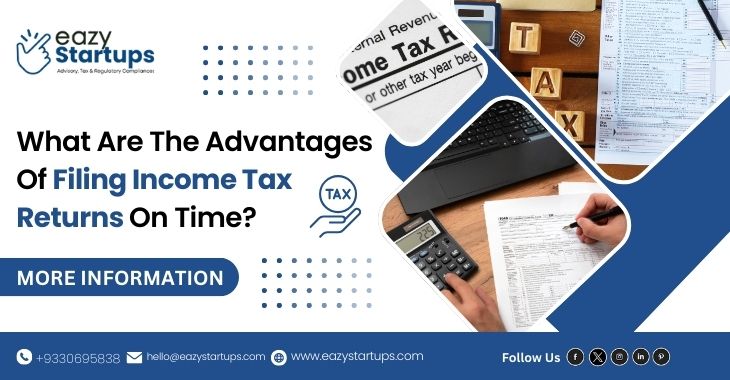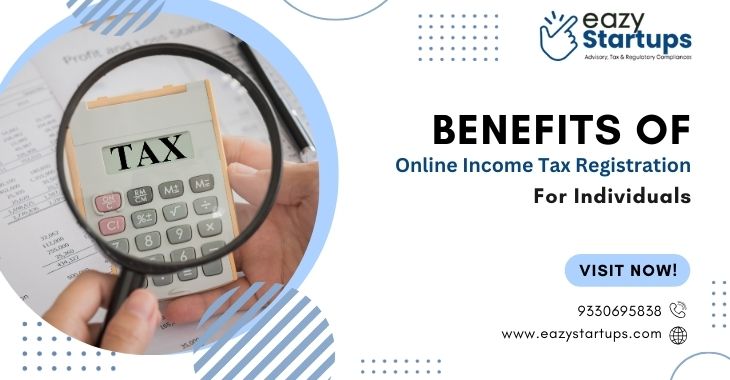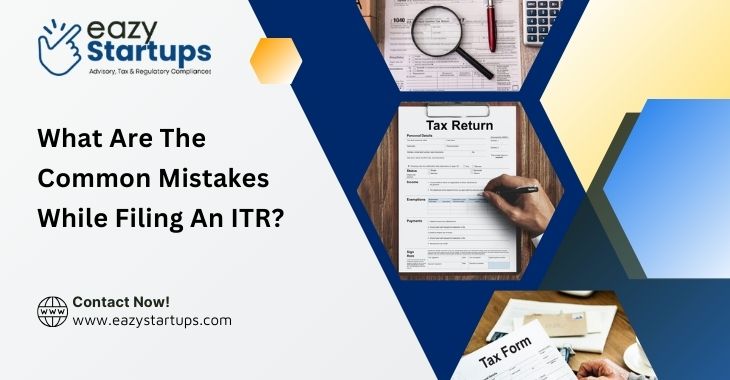It may seem overwhelming if you’ve never filed your income tax online, but it’s actually easier than you would think. You can easily manage it with the help of the government’s easy-to-use portal and detailed procedure. In this blog, Eazy Startups, your helping hand for Online Income Tax Filing in India, will assist you in filing your income tax online.
Without any further ado, let’s look at this topic’s discussion:-
1. Get Your Documents Ready
2. Register on the Income Tax Portal
3. Choose the Right ITR Form
4. Pre-Fill Your Details
5. Declare All Your Income
6. Claim Deductions and Exemptions
7. Submit and Verify Your Return
Get Your Documents Ready:
Gather all required paperwork before you begin. You need your PAN card, Aadhaar card, Form 16 (if you work for a salary), bank account information, and any documentation proving your investments or deductions. Preparing everything saves time, and nothing crucial is missed. Spending a few minutes getting ready is preferable to rushing later.
Register on the Income Tax Portal:
After gathering your important documents for Online Income Tax Filing, you should visit the official e-filing website (https://www.incometax.gov.in) and register if you haven’t already done so. Your user ID should be your PAN number. Simply input your information, including your name, date of birth, and email address, and create a password. After registering, you can access the e-filing system by logging in.
Choose the Right ITR Form:
Depending on your income source, the next step is to pick the appropriate Income Tax Return (ITR) form. For example, you require the ITR-1 (Sahaj) form if you are a salaried individual. You could require a different form if you make money from a business, freelancing, or other sources. Don’t worry; the site contains clear directions to help you.
Pre-Fill Your Details:
Once you check-in, you’ll see that certain information, such as your income and personal details, is pre-filled in the form. The information your bank or employer provides is the source of this data. Verify these details one more time for accuracy. Before continuing, you can fix any mistakes you find. It guarantees accuracy in your paperwork and saves time.
Declare All Your Income:
When you opt for Online Income Tax Filing in India, you should declare all your income sources. It covers your pay, earnings from freelancing, interest from savings accounts, and even rental income from real estate if you own any. The tax department can cross-verify these facts, so don’t omit anything. Being truthful here will help you stay out of trouble later.
Claim Deductions and Exemptions:
Here’s where you can cut costs. Ensure you take advantage of all the deductions you are entitled to, such as Section 80E interest on an education loan, Section 80D health insurance premiums, and Section 80C investments. Remember to include any applicable exemptions, such as leave travel allowance or HRA. Your tax liability might be considerably decreased by correctly claiming deductions.
Submit and Verify Your Return:
After completing all the information, carefully go over your form. Verify that nothing is omitted and that everything is accurate. Once your return has been submitted, you will need to confirm it. Using net banking, Aadhaar OTP, or mailing a signed hard copy to the income tax department are simple ways to accomplish this. Verification is necessary to finish the procedure.
Closing Words
If you break it down into reasonable steps, filing your income taxes for the first time may seem daunting. Don’t rush; take your time and thoroughly read the directions. You’ll find it’s not as hard as it looks when you’ve done it. Additionally, timely filing guarantees compliance and prevents fines. If you need professional help completing your Online Income Tax Filing in India, contact Eazy Startups today. You can avoid all complications with the assistance of specialists from Eazy Startups. Contact us for more details.











Recent Comments